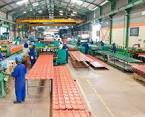Investment Spotlight – Africa

Investing in Africa – Why and How
According to the UN World Population Prospects report, Africa will be the fastest-growing continent “by any measure” over the course of the 21st century. Investors are understandably interested.
A MarketWatch article earlier in the year went over 3 reasons why you should consider investing in Africa:
1) Young and growing population: With a population of more than 1 billion people, expected to double by mid-century, Africa offers an enormous potential market.
2) Money to spend and a love for brands: African consumers and businesses spend a total of $4 trillion today. By 2025, McKinsey projects that household consumption will reach $2.1 trillion and business spending $3.5 trillion – a total $5.6 trillion in business and investment opportunities.
In addition, both quality and brand matter to African consumers when they are making buying decisions. Some 58% of consumers are brand loyal and many are willing to pay a higher price for well-known brands, a McKinsey consumer report says.
3) Economy getting stronger and more diverse: While growth has slowed among oil exporters, the rest of Africa is continuing to move forward with positive growth rates. Countries not dependent on resources for growth, typically smaller economies, are progressing with economic reform and increasing their competitiveness.
Stocks Mirror the Economy
Sub-Saharan Africa has around 29 stock exchanges representing 38 countries including two regional exchanges. These exchanges have a lot of disparity in terms of their size and trading volume. The continent has a handful of prominent exchanges and many new and small exchanges which are characterized by small trading volumes and few listed stocks. Efforts are being put by all countries to boost their exchanges by improving investor education and confidence, access to funds and make the procedures more transparent and standardized. The table below depicts the dollar-adjusted returns (as of Sept. 30, 2014) of select stock exchanges in Sub-Saharan Africa (listed alphabetically).


Now You’re Ready to Invest in Africa. How to Proceed?
Direct Access
The way to directly access African stocks is to open a local brokerage account. This can be a bit complicated, as investors need to short list stocks, as well as stock exchanges. Some of the brokerage firms that cater to foreign investors interested in a single country include:
Tanzania: Orbit Securities, Vertex Securities;
Kenya: Faida Investment Bank;
Ghana: CAL Brokers, FirstBanc Brokerage Services and Stanbic Bank Ghana Brokerage
Nigeria: Zenith Securities, Meristem and Cowry Securities;
Zimbabwe: EFE Securities and Lynton Edwards;
South Africa: Nedbank Online Trading and Sanlam iTrade.
Some of the noteworthy companies across different exchanges are KenolKobil Ltd., Dangote Cement PLC, CRDB Bank, National Microfinance Bank (NMB), African Alliance, Bank of Kigali, Bralirwa Ltd., Equity Bank, KCB Bank, ARM Cement, Ecobank, UBA Plc, CIC Insurance, Britam, Courteville Business Solutions PLC and Naspers Ltd.
ETFs and Mutual Funds
Investing via ETFs and mutual funds comes with the built in advantage of ease (traded on U.S. exchanges), diversification and professional management. Some of the prominent ones are:
– The Market Vectors Africa Index ETF (AFK), which tracks some of the largest and most liquid stocks in Africa. It holds about 114 stocks and has a country allocation of Egypt (21.4%), South Africa (20.7%), Nigeria (15%), United Kingdom (12.6%) and Morocco (6.6%).
– The SPDR S&P Middle East & Africa ETF (GAF) is allocated 78.39% to South Africa, followed by the United Arab Emirates (8.23%), Qatar (7.72%), Egypt (3.97%) and Morocco (1.61%).
– The iShares MSCI South Africa Index (EZA) is allocated 99.5% to mid-sized and large companies in South Africa in the financial, consumer discretionary and telecommunication services sectors.
…
…
ADRs
American depositary receipts (ADRs) are a good way for investors in U.S. to pick select African stocks trading on U.S. exchanges. Many of these are natural resources plays, such as Anglogold Ashanti (AU), DRD Gold (DRD), Gold Fields (GFI), Harmony Gold (HMY), Randgold (GOLD), Sibanye Gold and Sasol (SSL). All of the previously mentioned companies are in mining, with the exception of Sasol, which is in the oil and gas business. In addition, MiX Telematics (MIXT) is in the logistics technology business. There is a wider universe of African stocks which trade on the Pink Sheets or over-the-counter (OTC) market. Pink sheets are less regulated and are traded in thin volumes.
The Bottom Line
Africa still has lot to combat. Political and social unrest, lack of infrastructure and poverty are common problems. But the bigger picture portrays the continent’s progress; increasingly, there is political stability, economic growth, and advances in its banking systems, with better accounting and transparency. There is increasing demand from its growing middle class and local companies are filling that need expanding. Nobody can predict the growth trajectory with accuracy but Sub-Saharan Africa is poised for growth.
Reference: Interested In Investing In Africa? Here’s How – Investopedia


Leave a Reply